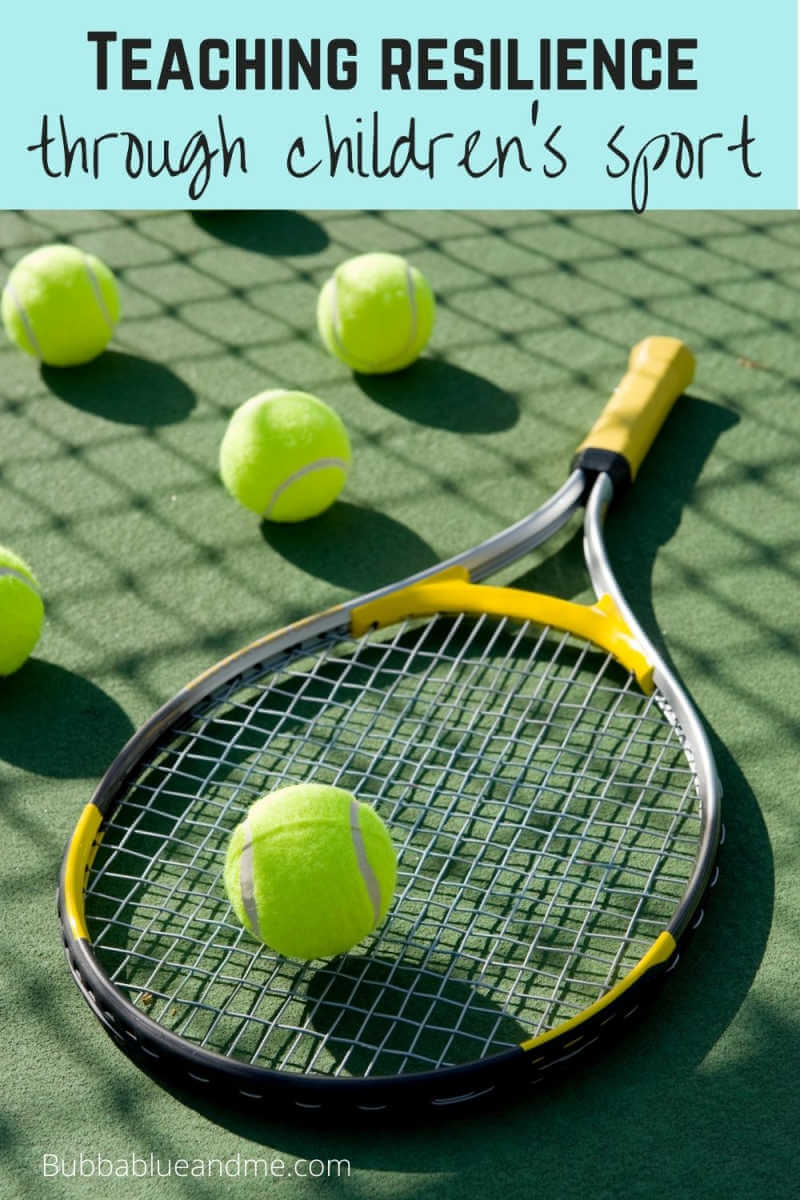Benefits of sports: teaching resilience through tennis
Playing sport is so important for children to experience. Whether it’s playing as part of a team, or individual sports, there aren’t many downsides compared with the benefits. In particular, playing tennis has certainly helped with teaching resilience to the children in the team. And even if they’re not particularly competitive, they can continue to learn every time they play.
Teaching resilience through sport
1. Competition
Not everyone can win all the time, and mostly (especially as they’ve got older), our team don’t win. I think N has only won 2 matches in tournaments or the league all last season.
He’s not a naturally competitive child. I’m much more competitive, and sometimes would like to see a bit more fire in him, and urgency. Sometimes there’s a spark with a fist pump when shots go well, or he’s won a great point. But generally, he’s playing at no.1 in his team. In our team, the children aren’t massively separated in ability. But the opponents tend to have one or even two particularly great players, while their lower ranked players are more the level of our number 1 and 2.
But N always wants to improve and play his shots. He doesn’t want to stand still. He still wants to win, but he also accepts that sometimes (more often than not), he’ll lose. But there’s still plenty to enjoy and learn from playing people better than you. It helps that often they’re playing as a team, rather than just playing in tournaments on their own.

*Ad – contains affiliate links
2. Winning and losing
I often wonder what our team think going in to play a match. Do they think about their last few matches, who they know who might be playing, and therefore expecting that they’ll lose. Or do they always go in thinking that on a good day, anyone can stand a chance of winning, and to give it everything they’ve got.
If they win it’s a great feeling. But if they lose, there’s still the satisfaction of supporting the other members of the team. Of building each other up. Of encouraging them, and congratulating shots.
There’s no point being a bad loser, and sportsmanship, especially at mini tennis level is a really important value to learn. Be a kind winner, but look for the positives in every match you lose as well.
Even after several years of playing, there are still children we see who cry during matches, even when playing well, when they end up winning, or losing. Thankfully N has never been one of those children, and doesn’t really get why they get so worked up about it, some quite unreasonably. Maybe they need to learn that there’s other ways to react to playing sport, and learn techniques to get them past those bad habits.
By playing stronger players, they’re also learning to recognise more about their game, how they play, what they need to change. And it encourages them to want to learn to improve. It helps that there are a couple of tennis assistants and level 1 coaches who help out with the group junior session. They’ve never played matches, but are really good players, and our children look up to them, and want to be like them in future.
3. Playing fair
The one thing that’s probably hardest for children to do is play fair. For N it’s his biggest hate, and he really struggles when other children don’t play by the rules…fudging scores, or calling shots out. You have to expect a few line call errors – it is hard to see where a ball falls when you’re in the game, and the ball is going fast. But be generous in your line calls, and be fair. Especially when you’re calling a lot out, things get suspicious.
It’s been a steep learning curve for N. To keep calm when an opponent is calling everything out. To stand your ground when you know you’re in the right about a score, and call the tournament referee over when there’s a disagreement. If you’re playing sport, you can’t let things go, but then let it fester. You need to get past it at the time, play on…then moan (out of hearing) afterwards.
4. Look for the matches you enjoy
For junior tennis, there are lots of playing opportunities, and you can pick and choose tournaments according to whether you like the venue, find the tournament referee really friendly and supportive, or who else has entered.
Our players really enjoy playing the league matches because they’re there as a team. If they continue playing as adults, chances are they’ll be playing doubles or as a team. And it’s nice to be in a friendly team environment with social as well as competitive aspect to matches. I think much of the fact that our group of players all get on really well, has encouraged them to continue playing while many other who don’t play in the team at all have stopped doing tennis.
5. Extreme tennis
While not an experience I’d advocate, our team have played some extreme tennis this year. Most people think of tennis being a summer sport (and yes, when I was a child, we only ever played seasonally). But they play outside, all year round. As long as it’s not too wet to make the balls not bounce.
They’ve trained in quite bad rain. And one of the B team matches, the snow came in earlier than expected. It was just too cold to get through all of the doubles match, after they’d already played the 2 singles matches. So we had to abort the match. But it taught them they’re strong enough to give it a go and keep going. Although I do think they should have spoken up when I asked if they wanted to stop. Eventually we had to pull them off as none of the four would say they were too cold to play on. Ours were quite chirpy afterwards, despite them losing due to just being behind at the point of stopping. It’s an experience, and it will never be that bad again.
Find out more about getting children playing tennis
Overall, I think they’ve learnt a lot from playing tennis individually and as a team. And they can take that into other sports or even work as they they go through life. Playing sport is great for teaching resilience in children.
What sports are your children involved with and what have they learnt from taking part?

